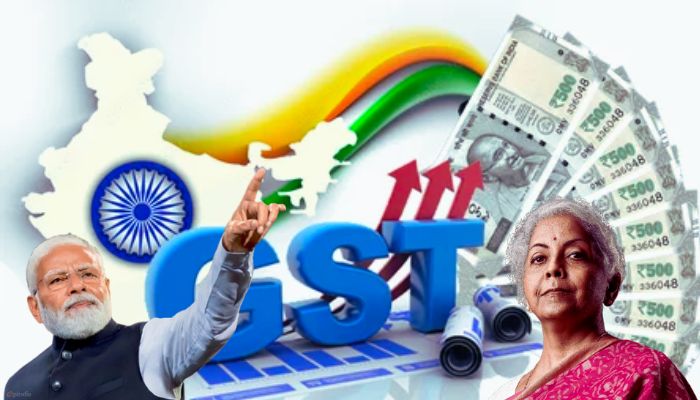In a move that would give a massive boost to India’s agriculture sector, the Modi government slashed the goods and services tax (GST) on various farm goods to 5 percent from 12 percent. These goods include tractors, agricultural, horticultural or forestry machinery for soil preparation or cultivation, lawn or sports-ground rollers, nozzles for drip irrigation equipment, and nozzles for sprinklers.
The GST council rolled out these revised tax rates on Wednesday, September 3. These reduced rates, however, will not be applicable to road tractors for semi-trailers with an engine capacity of more than 1800 cc.
Now, Fixed Speed Diesel Engines of power not exceeding 15HP, other hand pumps, sprinklers, drip irrigation system including laterals, mechanical sprayers, harvesting or threshing machinery, including straw or fodder balers, grass or hay mowers, parts thereof will be under 5 percent GST.
Same will apply to other agricultural, horticultural, forestry, poultry-keeping or bee-keeping machinery, including germination plant fitted with mechanical or thermal equipment; poultry incubators and brooders; parts thereof, composting machines, self-loading or self-unloading trailers for agricultural purposes, hand propelled vehicles like hand carts, rickshaws and the like.
Notably, during his address from the ramparts of the Red Fort on this Independence Day, Prime Minister Narendra Modi had announced that the current four-tiered GST structure would be rationalised into a citizen-friendly “simple tax”.
Welcoming the GST reforms, PM Modi said that this will benefit common man, farmers, MSMEs, middle-class, women, and youth.
“During my Independence Day Speech, I had spoken about our intention to bring the Next-Generation reforms in GST. The Union Government had prepared a detailed proposal for broad-based GST rate rationalisation and process reforms, aimed at ease of living for the common man and strengthening the economy,” PM Modi posted.
“Glad to state that @GST_Council, comprising the Union and the States, has collectively agreed to the proposals submitted by the Union Government on GST rate cuts & reforms, which will benefit the common man, farmers, MSMEs, middle-class, women and youth. The wide ranging reforms will improve lives of our citizens and ensure ease of doing business for all, especially small traders and businesses,” he added.
During my Independence Day Speech, I had spoken about our intention to bring the Next-Generation reforms in GST.
The Union Government had prepared a detailed proposal for broad-based GST rate rationalisation and process reforms, aimed at ease of living for the common man and…
— Narendra Modi (@narendramodi) September 3, 2025
Meanwhile, Secretary of the Department of Revenue in the Ministry of Finance, Arvind Shrivastava, said that the decision to correct the inverted duty in GST for agricultural goods will encourage the domestic use of fertiliser.
When asked about the increasing global competitiveness of the farmers and the government’s initiative to raise farmers’ income, Arvind Shrivastava said that the GST Council’s decision to cut tax on agricultural goods will make fertilisers cheaper and will increase productivity.
Shrivastava said, “Under GST, the problem of inverted duty is being solved in the fertiliser sector, which will enable and encourage the domestic use of fertilisers.
“The implements in the agriculture sector, which were at 12 per cent, are being reduced to 5 per cent. This will do two things. First, it will make it cheaper for farmers. Two, we expect more farmers to be able to use it, which enhances productivity… There will be a positive effect,” he added.
#WATCH | Delhi | On being asked about the steps taken to increase the competitiveness of the farmers, Arvind Shrivastava, Secretary, Department of Revenue, Ministry of Finance, says, “Under GST, the problem of inverted duty is being solved in the fertiliser sector, which will… pic.twitter.com/w5ytCQEDPd
— ANI (@ANI) September 3, 2025
Furthermore, the Secretary of the Revenue Department stated that a reduction in GST rates will support ongoing policies and programs in the agricultural sector. He said, “In addition to it, all that the government is doing in the agricultural sector through policies and programs will continue. Eventually, we will be supplementing those effects by this.”

